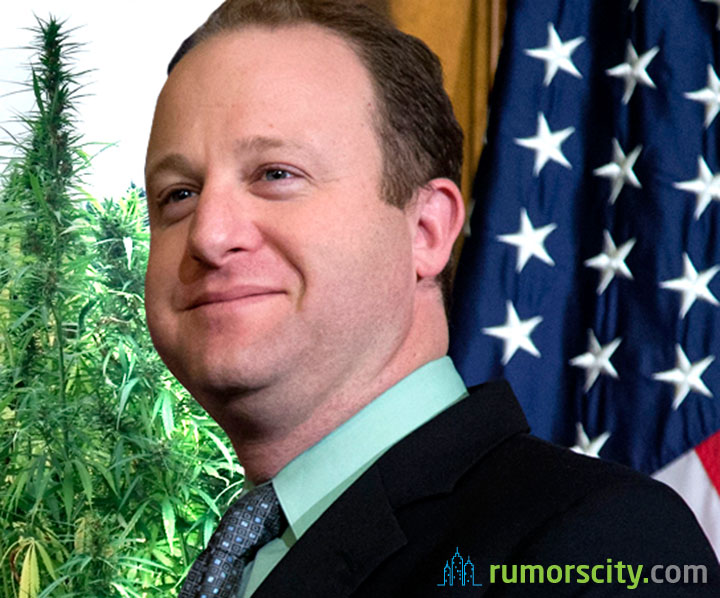U.S. Congressman calls to Ban the U.S. Dollar
Congressman Jared Polis of Colorado has called U.S. to put a ban on U.S. dollar bills in his statement addressed to Secretary Lew, Chairwoman Yellen, Comptroller Curry, Acting Chairman Wetjen, Chairman Gruenberg, and Chairwoman White. “The dollar bill market has been extremely susceptible to forgers, tax fraud, criminal cartels, and armed robbers stealing millions of dollars from their legitimate owners.”
This is a response to the recent demand from Senator Joe Manchin of West Virginia for federal regulators to ban Bitcoin. He expressed his concerns that the unregulated nature of the cryptocurrency “has allowed users to participate in illicit activities, while also being highly unstable and disruptive to our economy.”
However, if Bitcoin is used for illicit activities, so are dollar bills, wrote Polis. The Colorado congressman pointed out that dollar bills “is highly subject to forgery” and used extensively “for drug trafficking.”
“The very features of dollar bills, such as anonymous transactions, have created ubiquitous uses from drug purchases, to hit men, to prostitutes, as dollar bills are attractive to criminals who are able to disguise their actions from law enforcement,” he continued. “Anonymity, combined with a dollar bills’ ability to finalize transactions quickly, makes it very difficult, if not impossible, to reverse fraudulent transactions.”
He closes his statement by urging “the regulators to work together, act quickly, and prohibit this dangerous currency from harming hard-working Americans.”
With more politicians voicing their opinions regarding the digital currency, there is no doubt that the governments are taking Bitcoin in a more serious note.
Read the entire letter below:
March 5, 2014
Dear Secretary Lew, Chairwoman Yellen, Comptroller Curry, Acting Chairman Wetjen, Chairman Gruenberg, Chairwoman White:
I write today to express my concerns about United States dollar bills. The exchange of dollar bills, including high denomination bills, is currently unregulated and has allowed users to participate in illicit activity, while also being highly subject to forgery, theft, and loss. For the reasons outlined below, I urge regulators to take immediate and appropriate action to limit the use of dollar bills.
By way of background, a physical dollar bill is a printed version of a dollar note issued by the Federal Reserve and backed by the ephemeral “full faith and credit” of the United States. Dollar bills have gained notoriety in relation to illegal transactions; suitcases full of dollars used for illegal transactions were recently featured in popular movies such as American Hustle and Dallas Buyers Club, as well as the gangster classic, Scarface, among others. Dollar bills are present in nearly all major drug busts in the United States and many abroad. According to the U.S. Department of Justice study, “Crime in the United States,” more than $1 billion in cash was stolen in 2012, of which less than 3% was recovered. The United States’ Dollar was present by the truck load in Saddam Hussein’s compound, by the carload when Noriega was arrested for drug trafficking, and by the suitcase full in the Watergate case.
Unlike digital currencies, which are carbon neutral allowing us to breathe cleaner air, each dollar bill is manufactured from virgin materials like cotton and linen, which go through extensive treatment and processing. Last year, the Federal Reserve had to destroy $3 billion worth of $100 bills after a “printing error.” Certainly this cannot be the greenest currency.
Printed pieces of paper can fit in a person’s pocket and can be given to another person without any government oversight. Dollar bills are not only a store of value but also a method for transferring that value. This also means that dollar bills allow for anonymous and irreversible transactions.
The very features of dollar bills, such as anonymous transactions, have created ubiquitous uses from drug purchases, to hit men, to prostitutes, as dollar bills are attractive to criminals who are able to disguise their actions from law enforcement. Due to the dollar bills’ anonymity, the dollar bill market has been extremely susceptible to forgers, tax fraud, criminal cartels, and armed robbers stealing millions of dollars from their legitimate owners. Anonymity, combined with a dollar bills’ ability to finalize transactions quickly, makes it very difficult, if not impossible, to reverse fraudulent transactions.
Many of our foreign counterparts already understand the wide range of problems that physical currencies can have. Many physical currencies have enormous price fluctuations, and even experience deflation. 20 years ago Brazil had an inflation rate of 6281%. In 4 years (2001 to 2005), the Turkish Lira went from 1,650,000: $1 to 1.29 to $1. In 2009, Zimbabwe discontinued it’s dollar. Before it was eliminated, the Zimbabwe dollar was the least valuable currency in the world and their central bank even issued a $100 trillion dollar banknote. A person would starve on a billion Zimbabwe dollars and it took an entire wheelbarrow full of $100 billion dollars in notes to purchase a loaf of bread.
The clear use of dollar bills for transacting in illegal goods, anonymous transactions, tax fraud, and services or speculative gambling make me wary of their use. Before the United States gets too far behind the curve on this important topic, I urge the regulators to work together, act quickly, and prohibit this dangerous currency from harming hard-working Americans.
Sincerely,
Jared Polis
Member of Congress



